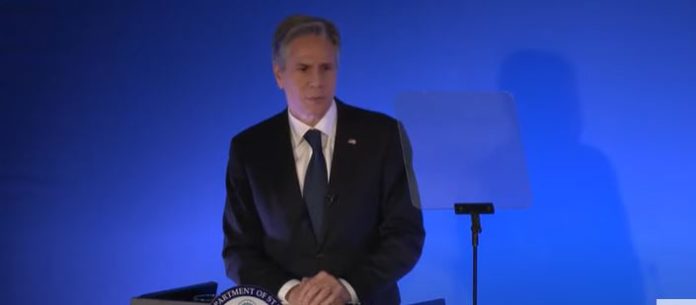US Secretary of State, Antony Blinken has set out America’s new strategy for his government’s relations with Sub-Sahara Africa.
Blinken is on a tour to Africa and South Africa was his first stop.
Blinken has highlighted openness, fulfilling the promise of democracy, recovering from the impact of Covid-19 and a clean energy transition, to attendees of his speech, at the University of Pretoria’s Future Africa Institute.
He says the strategy is rooted in the recognition that sub-Saharan Africa is a major geopolitical force, one that shaped our past, is shaping our present, and will shape our future.
In short, these are the four priorities highlighted by Blinken:
- First, we will foster openness, by which we mean the capacity of individuals, communities, and nations to choose their own path and shape the world we live in.
- Second priority: working with African partners to fulfill the promise of democracy.
- Third, we’ll work together to recover from the devastation wrought by COVID-19 and lay the foundation for broad-based, sustainable economic opportunity to improve the lives of our people.
- That brings me to the final area where our partnership is crucial: leading on clean energy transition that saves our planet, adapts to the effects of climate change, and provides energy to power economic opportunity.
For Blinken’s full speech, and the details behind each priority, click HERE
It’s fitting to set out our strategy here in South Africa because there is such a deep bond between our nations and people, and all we have in common as vibrant democracies whose diversity remains our greatest strength.
Our strategy is rooted in the recognition that sub-Saharan Africa is a major geopolitical force, one that shaped our past, is shaping our present, and will shape our future.
It’s a strategy that reflects the region’s complexity – its diversity, its power and influence – and one that focuses on what we will do with African nations and peoples, not for African nations and peoples.
Put simply, the United States and African nations can’t achieve any of our shared priorities, whether that’s recovering from the pandemic, creating broad-based economic opportunity, addressing the climate crisis, expanding energy access, revitalizing democracies, strengthening the free and open international order – we can’t do any of that if we don’t work together as equal partners.


